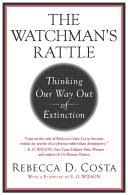Today's Problems Are Too Complex for Individuals to Solve
The human race has had a long and romantic tradition of crediting great breakthroughs to the tribulations of single individuals: Einstein, Archimedes, Benjamin Franklin, Van Gogh, da Vinci—the list is lon^g. Interestingly, every story about an epiphany is similar: An eclectic individual attempts to solve a complex problem that has stumped humankind for centuries, when suddenly he stumbles on an "aha!" moment. At first his revelation is rebuked by everyone, and then, over time, the inventor is redeemed and his ideas enthusiastically emtraced by all. The town throws a parade. The discoverer is praised for his unwavering persistence, lavished with acknowledgment and riches, and then rides off into the sunset as the film fades to black.
Nice story.
But is it true? Are insights the unique providence of individual genius?
Sometimes they are, but more often they are not.
It turns out there's a reason schoolchildren can name the inventor of the cotton gin and steam engine (even though they have never seen one) but have no idea who invented the Internet, semiconductor, or cell phone despite using these products every day. Today more and more innovations are the result of collaborative teams, not individuals. In fact, so many people play a role in complex collaboration that we would be hard-pressed to decide which individual's contribution was the most valuable: Was the mathematician more important than the chemist or physicist or engineer? It's as difficult as deciding who is responsible for a successful movie: The director? Producer? Screenwriter? The actors, the animators, or the editors? No wonder acceptance speeches for movie and science awards sound an awful lot like roll calls as recipients thank dozens upon dozens of collaborators and invite ten people to stand with them on the stage. They know that complex projects require collaboration—no single mastermind can claim all the credit.
That's because the solutions to large, complex problems demand a convergence of many different areas of expertise. No one person possesses enough talent in enough disciplines to tackle today's systemic problems. One person solve global warming? Not a chance. Terrorism? No way. Preventable childhood diseases? Not even Bill Gates himself It's not a matter of resources; it's a matter of difficulty.
Notes:
History is filled with the names of inventors who made great discoveries, but it took teams to invent the Internet, Cell Phone, and Semi-Conductor.
Folksonomies: history invention
Taxonomies:
/business and industrial (0.500313)
/law, govt and politics/espionage and intelligence/terrorism (0.500171)
/hobbies and interests/getting published/screenwriting (0.499946)
Keywords:
cell phone (0.980586 (negative:-0.381500)), da Vinci—the list (0.978326 (neutral:0.000000)), eclectic individual attempts (0.976847 (neutral:0.000000)), Preventable childhood diseases (0.923697 (negative:-0.867961)), collaboration—no single mastermind (0.922018 (positive:0.208130)), wonder acceptance speeches (0.916462 (negative:-0.599291)), complex problem (0.820155 (neutral:0.000000)), great breakthroughs (0.817310 (positive:0.572918)), Van Gogh (0.815321 (negative:-0.202181)), single individuals (0.809998 (positive:0.572918)), human race (0.809505 (positive:0.572918)), great discoveries (0.808785 (positive:0.241521)), romantic tradition (0.803811 (positive:0.572918)), Benjamin Franklin (0.798410 (neutral:0.000000)), Nice story (0.791465 (positive:0.698148)), individual genius (0.791176 (positive:0.840063)), cotton gin (0.787510 (neutral:0.000000)), complex collaboration (0.786804 (positive:0.440006)), unique providence (0.783754 (positive:0.840063)), complex problems (0.783577 (positive:0.532891)), complex projects (0.783068 (positive:0.208130)), successful movie (0.777651 (neutral:0.000000)), steam engine (0.777262 (neutral:0.000000)), systemic problems (0.776430 (negative:-0.318710)), global warming (0.774526 (negative:-0.207533)), collaborative teams (0.774083 (neutral:0.000000)), science awards (0.773480 (negative:-0.599291)), different areas (0.769494 (positive:0.532891)), roll calls (0.769020 (negative:-0.599291)), inventor (0.674841 (positive:0.474566))
Entities:
Cell Phone:Company (0.906127 (negative:-0.381500)), Van Gogh:Person (0.802404 (negative:-0.282516)), Bill Gates:Person (0.694686 (negative:-0.380693)), Einstein:Person (0.543152 (positive:0.304575)), Archimedes:Person (0.539591 (neutral:0.000000)), global warming:FieldTerminology (0.529780 (negative:-0.207533)), Benjamin Franklin:Person (0.514622 (neutral:0.000000)), director:JobTitle (0.493329 (neutral:0.000000)), physicist:JobTitle (0.492364 (neutral:0.000000)), Producer:JobTitle (0.490381 (neutral:0.000000)), engineer:JobTitle (0.445974 (neutral:0.000000))
Concepts:
Invention (0.953341): dbpedia | freebase
Problem solving (0.907705): dbpedia | freebase
Collaboration (0.838190): dbpedia | freebase
Human (0.708015): dbpedia | freebase | opencyc
Individual (0.637646): dbpedia | freebase | opencyc
Person (0.619995): dbpedia | freebase | opencyc
Creativity (0.619419): dbpedia | freebase | opencyc
Internet (0.574495): dbpedia | freebase | opencyc





